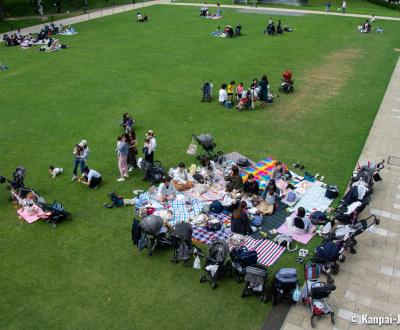Women in Japan
A Difficult Empowerment in Japanese Society
Japanese women face important and contradictory choices: getting emancipation through education, then work but risk a lonely life, or marry young and stay at home to take care of family.
If Japan’s makes life easier for Japanese women on many levels (a global safety, clean and convenient public services, many entertainment and leisure places such as shopping malls, cafés, beauty salons, etc.), it is still a very traditional society.
A traditional view on women’s role
Social organization still relies on old structures: men must go to work to cater for the family, and women are in charge of all domestic issues: raising children, but also taking care of elderly parents.
Consequently, and even though Japanese women benefit from one of the higher education levels in the world, they must often abandon a job or a career when their first child is born. Moreover, when they work, they often occupy part-time or subordinate positions, and few can reach senior posts or high political functions.
However recently, several studies by the Japanese government found that mentalities were changing and that the stay-at-home mother status was not the only ideal feminine way of life. The low birth rate is also questioning the old-fashioned ways of thinking.
An essential asset in Japanese society
Despite Japanese government’s voluntarist announcement in 2014 following the Abenomics policies, especially to promote women’s work, the situation only went downhill. As a matter of fact, in 2022 Japan was ranked 116th out of 146 countries in the World Economic Forum Global Gender Gap Report.
In 2023, the Japanese government set the target of more than 30 % of female executives by 2030 in Tokyo bourse’s largest companies. A policy that aims to complement the one requiring at least 1 woman among board members in 2025. In July 2022, only 2,2% of the companies had reached this objective and 18,7% still had no woman among their executive boards.
In the meantime, the portraying of women as objects, widely spread by pop culture and macho culture still holds strong in the archipelago. Feminism as it is practiced in Western countries is not as developed in Japan. However, times are changing slowly and Japanese women tend to be more vocal about the inequalities, especially after cases of medical school officials tampering exams to make sure female students do not pass were revealed. The #metoo movement, although of a lesser extend in Japan, nevertheless allowed women to speak up about rapes and systemic sexual harassment, especially thanks to the mediatization of Shiori Ito’s story.

